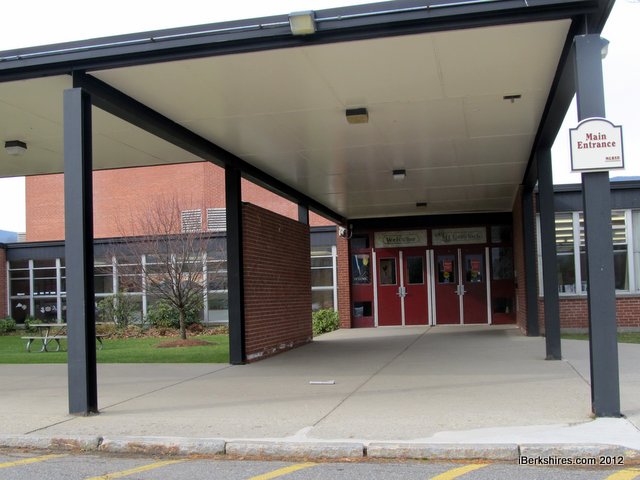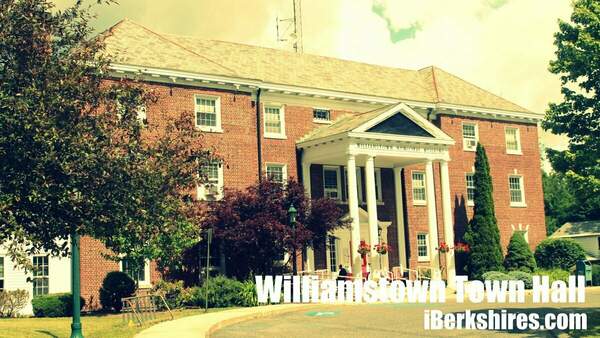Mount Greylock Tries to Avoid Slippery Floors as Temps Rise
 School officials are keeping an eye on the humidity at Mount Greylock Regional to prevent another closure because of slippery floors. School officials are keeping an eye on the humidity at Mount Greylock Regional to prevent another closure because of slippery floors. |
WILLIAMSTOWN, Mass. — The Mount Greylock Regional School is too big, inefficient and, in many places, literally falling apart.
But it is not without its fans.
Unfortunately for school officials, they are the kind of fans that you plug into the wall. And they are needed this spring to help stay ahead of the humidity issue that
forced school to close for two days in September because of dangerously slippery floors.
Electric fans are just one of the measures the school is using this spring to prevent more school closures as the mercury rises and the school year — altered by snow, humidity and blackout days — extends deeper into June.
"We were caught by surprise in the fall," Mount Greylock Superintendent Rose Ellis said on Friday. "We want to be proactive now, and we have a number of interventions in place."
While most school officials in the Northeast stop watching the Weather Channel after snow season ends, Ellis and Mount Greylock facilities supervisor Jesse Wirtes have been monitoring weather forecasts to predict when humidity might again become a problem.
"I had someone come in on Monday or Tuesday — and they had sneakers on — and say to me, 'You know, it's a little slippery at the entrance,' Ellis said. "I said, 'Oh boy.' "
The school's anti-humidity measures kicked into high gear this week, as Ellis informed School Committee members in a Thursday email.
Among the steps being taken:
-
Distributing extra floor rugs at building entrances.
-
Borrowing dehumidifiers and, yes, electric fans from Williams College to add to the school's stock.
-
Opening and closing windows as the dew point fluctuates.
-
Advising faculty to wear sneakers.
-
Judiciously using the heat, particularly in larger spaces like the gymnasium.
The last measure is particularly ironic.
"We've got the heat on, and we're already over budget on heat for the year," Ellis said, referring to another problem linked to the building's inefficiency.
School officials are attempting to address the building's faults by partnering with the Massachusetts School Building Authority.
Mount Greylock issued several years' worth of unsuccessful "Statements of Interest" to the MSBA before being invited into the authority's eligibility phase last fall. That invitation came just after the school's slippery floor closures made headlines around the state.
Ellis said that some had suggested the school "staged" the slippery floor incident to highlight the building's inadequacies, but she said the problem was very real and the threat is very real for the remaining weeks of the school year.
"We're OK right now, but we're supposed to get heavy rain this afternoon," she said.
"What I'm trying to do is avoid closing the school. ... I don't know where we're going to go. I don't believe this plan is fool proof, but we're going to do what we can."
Tags: MGRHS, school closures, weather,
 School officials are keeping an eye on the humidity at Mount Greylock Regional to prevent another closure because of slippery floors.
School officials are keeping an eye on the humidity at Mount Greylock Regional to prevent another closure because of slippery floors.














